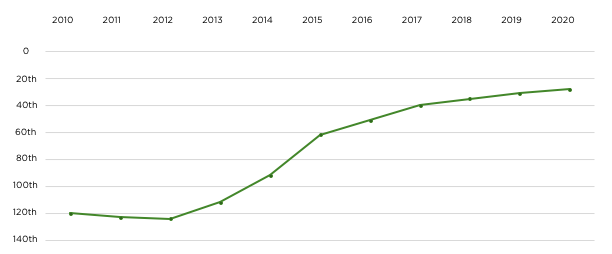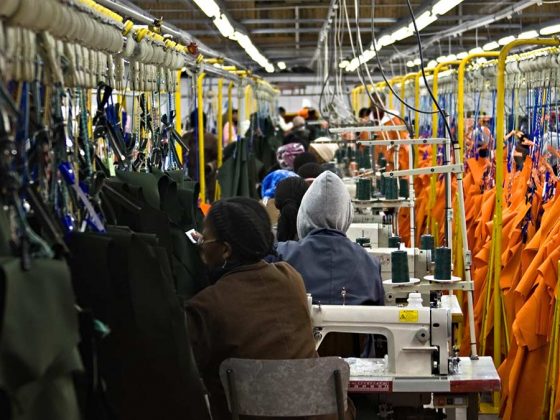On 16 January 2020, Mikhail Mishustin became the new Russian prime minister after his predecessor Dmitry Medvedev and the country’s government unexpectedly resigned. Although seen as a “technocrat,” Mishustin has a background which suggests that, to the extent he is able to wield influence, he may be more focused on making reforms to make Russia more attractive to foreign investment than his predecessors were.
Receiving 90% of the Duma’s vote after his nomination by President Vladimir Putin, Mishustin emphasized that helping Russian business is his priority. Speaking to the ruling United Russia Party, he said that the “most important issues” he will examine are lowering barriers to business and reducing costs. When addressing the Duma, he also mentioned improving living standards, bringing in foreign investment, increasing exports, and digitalizing the government. Part of his plan is to expedite the implementation of Putin’s USD 420 billion “national projects” that are intended to boost health, education, infrastructure, and other areas of the Russian economy.
Although largely unknown outside business circles until now, Mishustin does have a notable background in economics and finance. For the previous decade, Mishustin was the head of the Federal Tax Service, the primary organization in the Russian government that maintains corporate records. During his tenure there, he was credited with curtailing tax avoidance, digitalizing the monitoring of transactions, and reducing perceived levels of corruption at the agency. Mishustin also has some experience in the private sector: from 2008 to 2010 he was president of the asset management firm UFG Invest, a major investment company in Russia that was owned by Deutsche Bank at the time.
Russia’s new pro-business prime minister comes into power during a time of continued improvement of the country’s regulatory environment for small and medium enterprises, even as GDP growth and FDI remain sluggish. In the World Bank’s annual Ease of Doing Business rankings of 180–190 economies, Russia has steadily climbed over the last decade from 120th to 28th – now just below Austria and immediately above Japan. Sub-measures such as enforcing contracts (ranked 21) and starting a business (ranked 40) are also relatively high, although other indicators like protecting minority investors (ranked 72) and trading across borders (ranked 99) are lower.
Mishustin may, however, face obstacles as he seeks to improve Russia’s attractiveness to investors. His predecessor as prime minister, Dmitry Medvedev, remains chairman of the Government Commission on Monitoring Foreign Investment, the group of 22 high-ranking officials that approves foreign investments above certain thresholds in Russia’s “strategic industries.” For now, Mishustin is not listed among these officials, and Medvedev’s continued chairmanship could imply maintenance of the status quo for foreign investment in industries ranging from television and radio broadcasting to aircraft technology.
Amid the long-term questions surrounding possible constitutional change and the balance of power between the president and parliament, investors should pay attention to the short-term, tangible measures that Mishustin undertakes during his early days as prime minister. In seeking to upgrade Russia’s business environment and attract foreign investors from his new position, Mishustin will be operating in an environment constrained not only by politics, but also by sanctions and relatively low oil prices. The extent to which Mishustin leverages his previous experience both inside and outside the government remains to be seen.
Figure 1: Russia’s Ease of Doing Business Ranking (2010–2020)

*183–190 Economies are ranked on their ease of doing business. (Source: https://www.doingbusiness.org/en/rankings)




